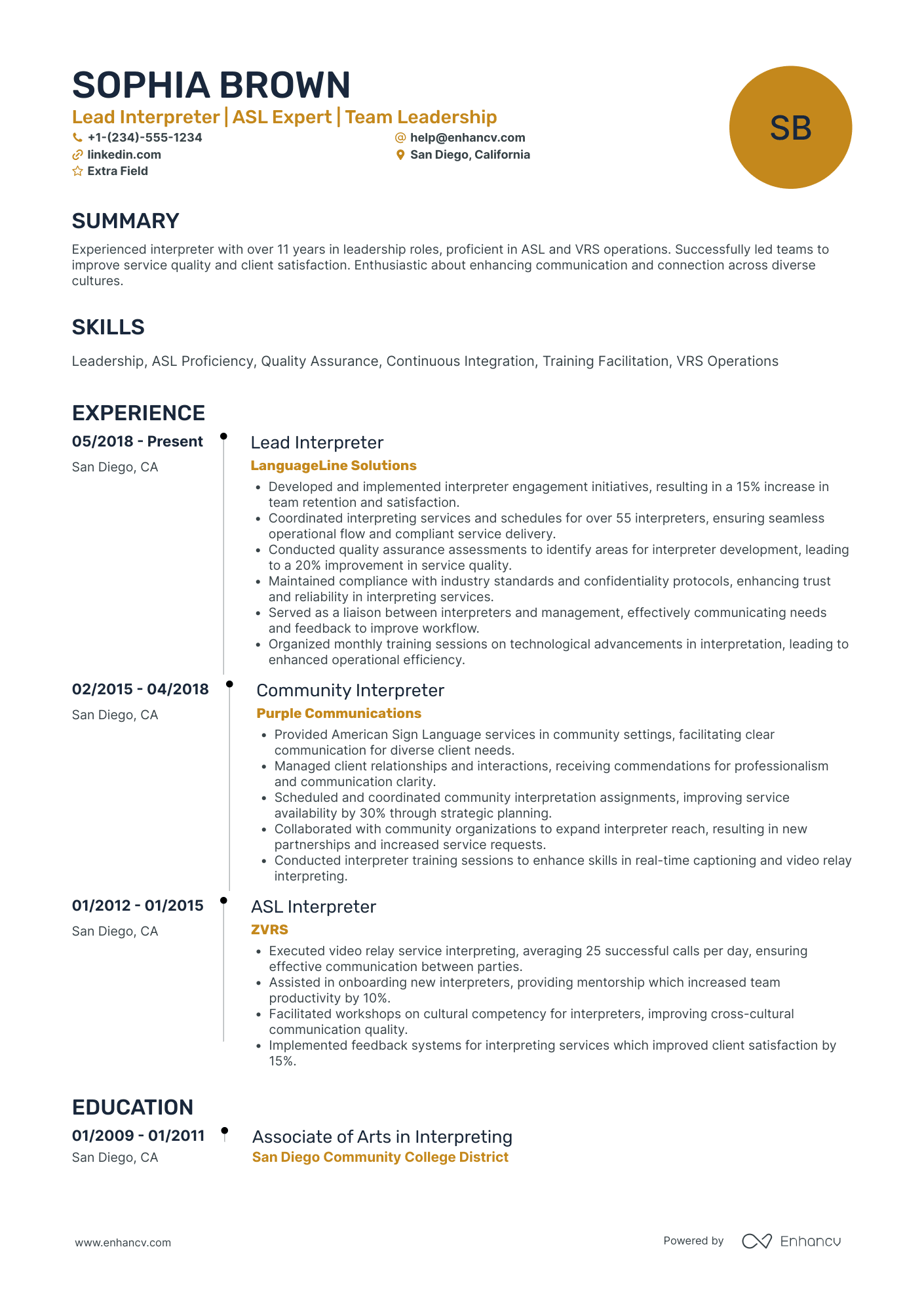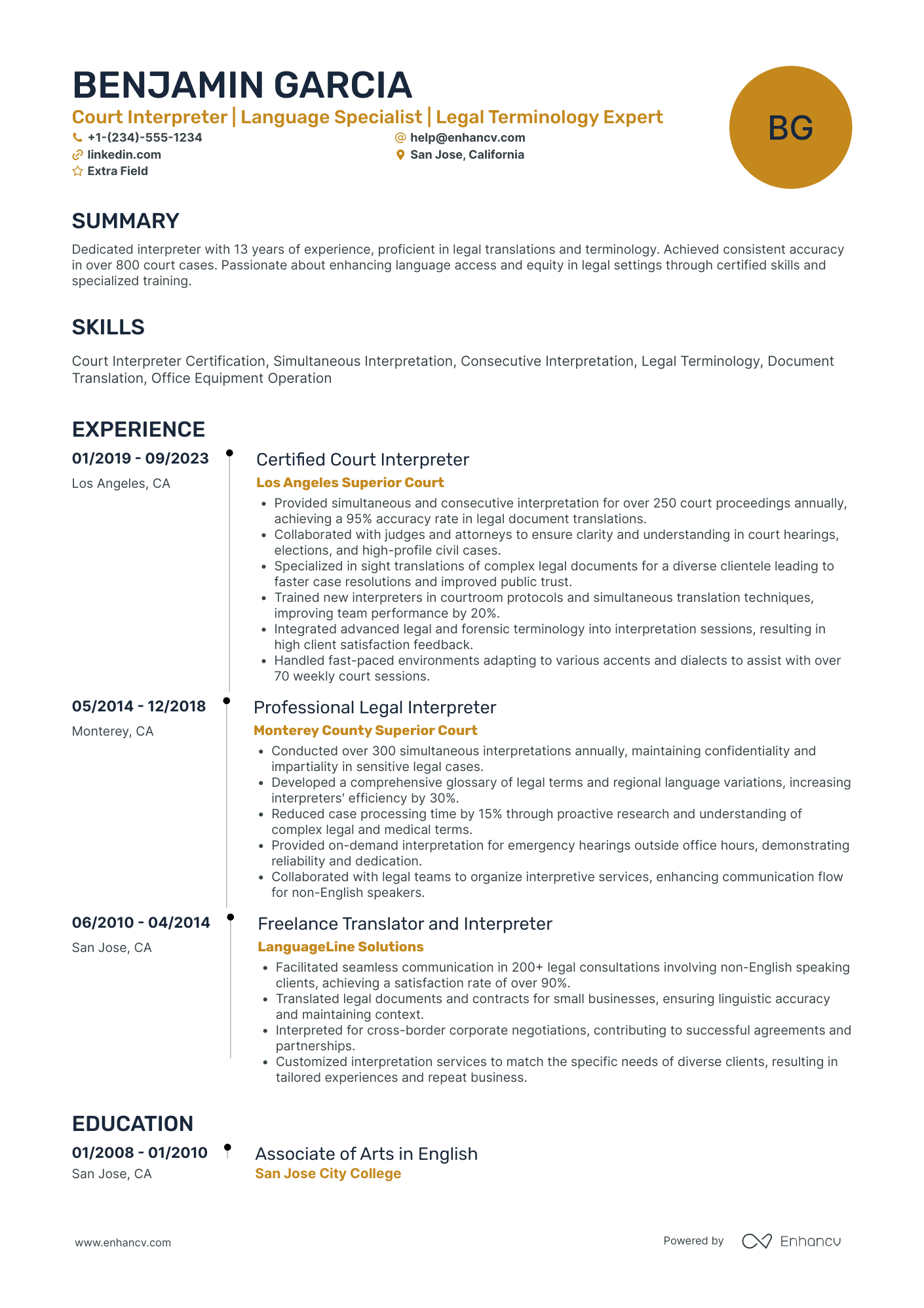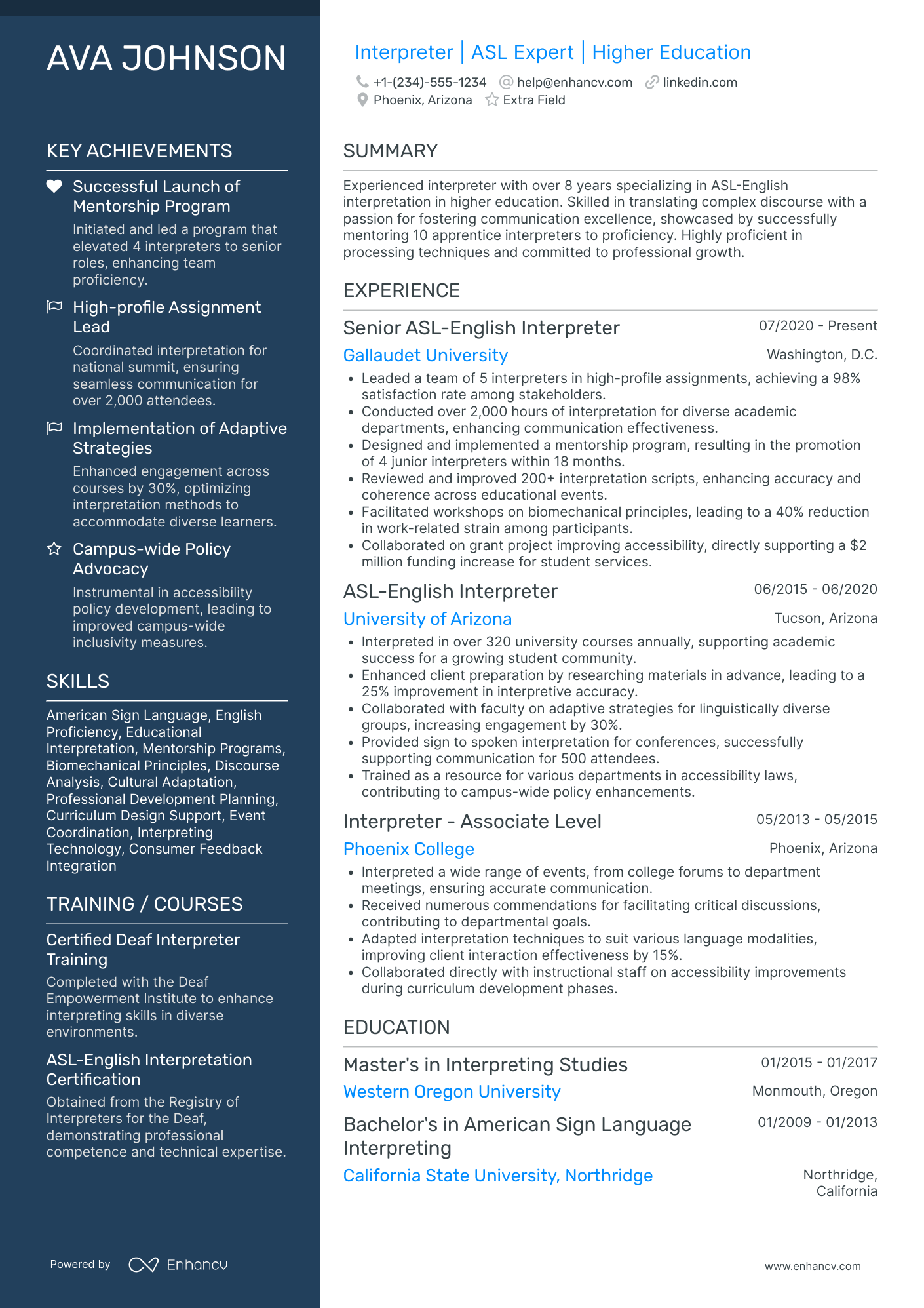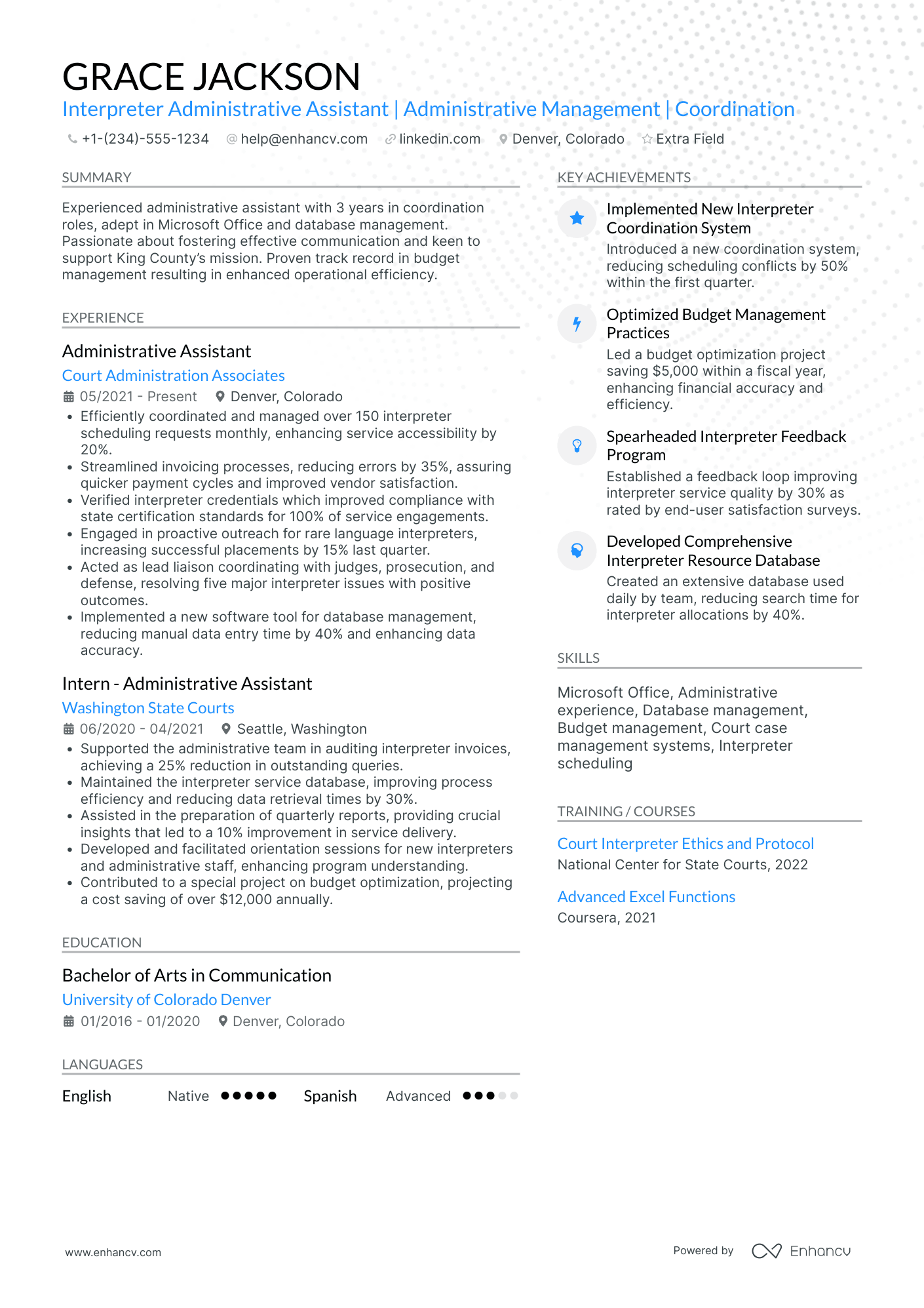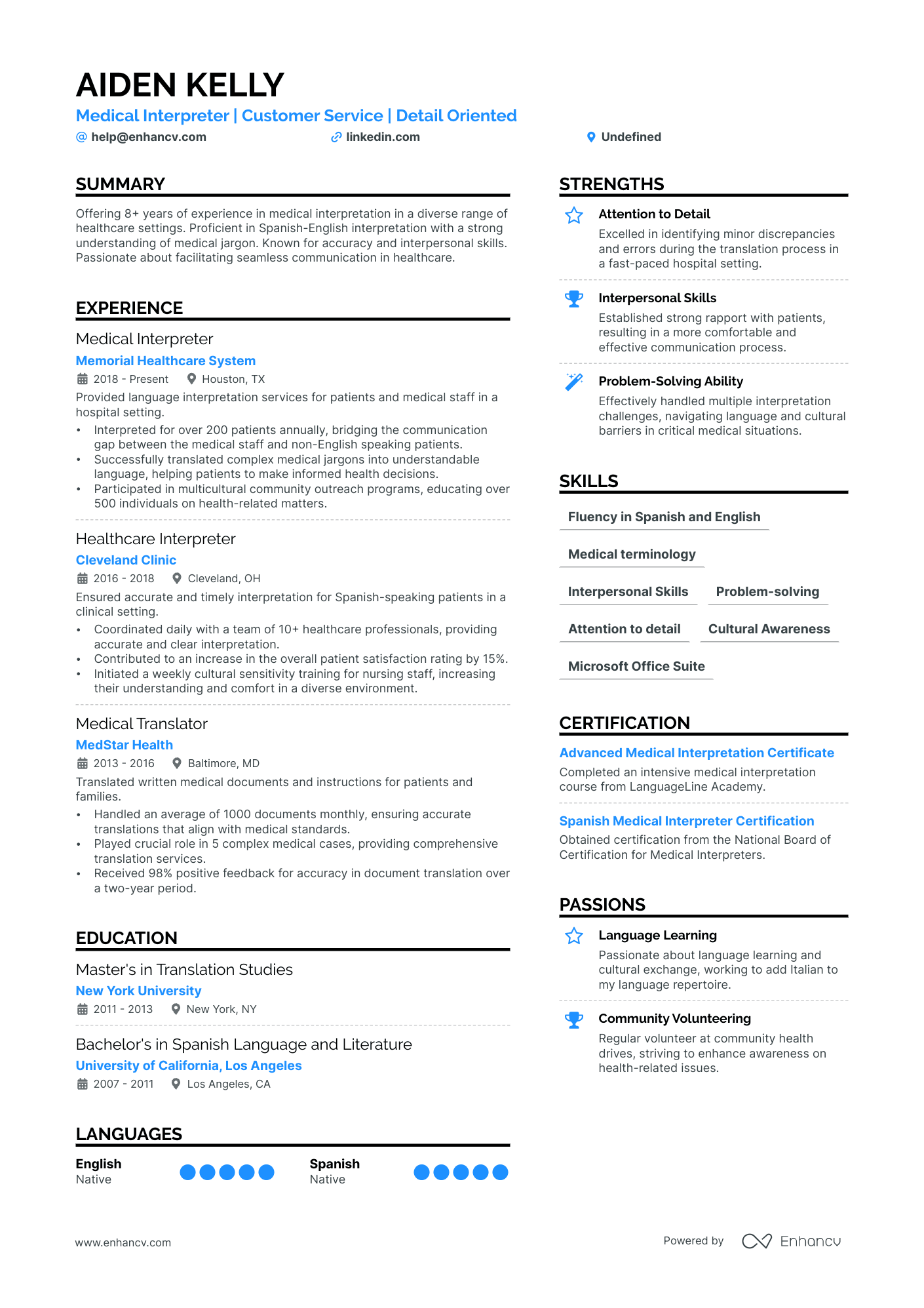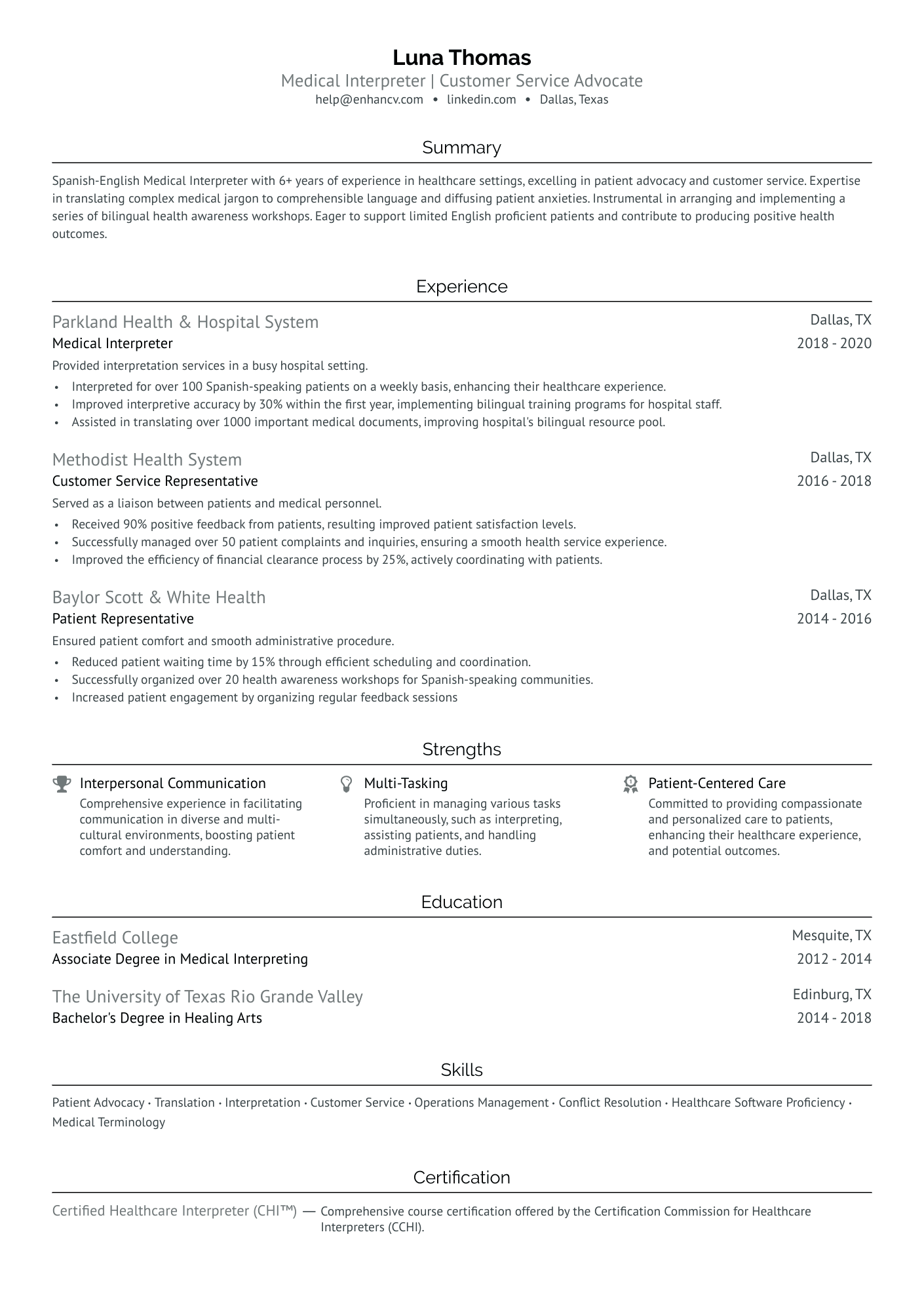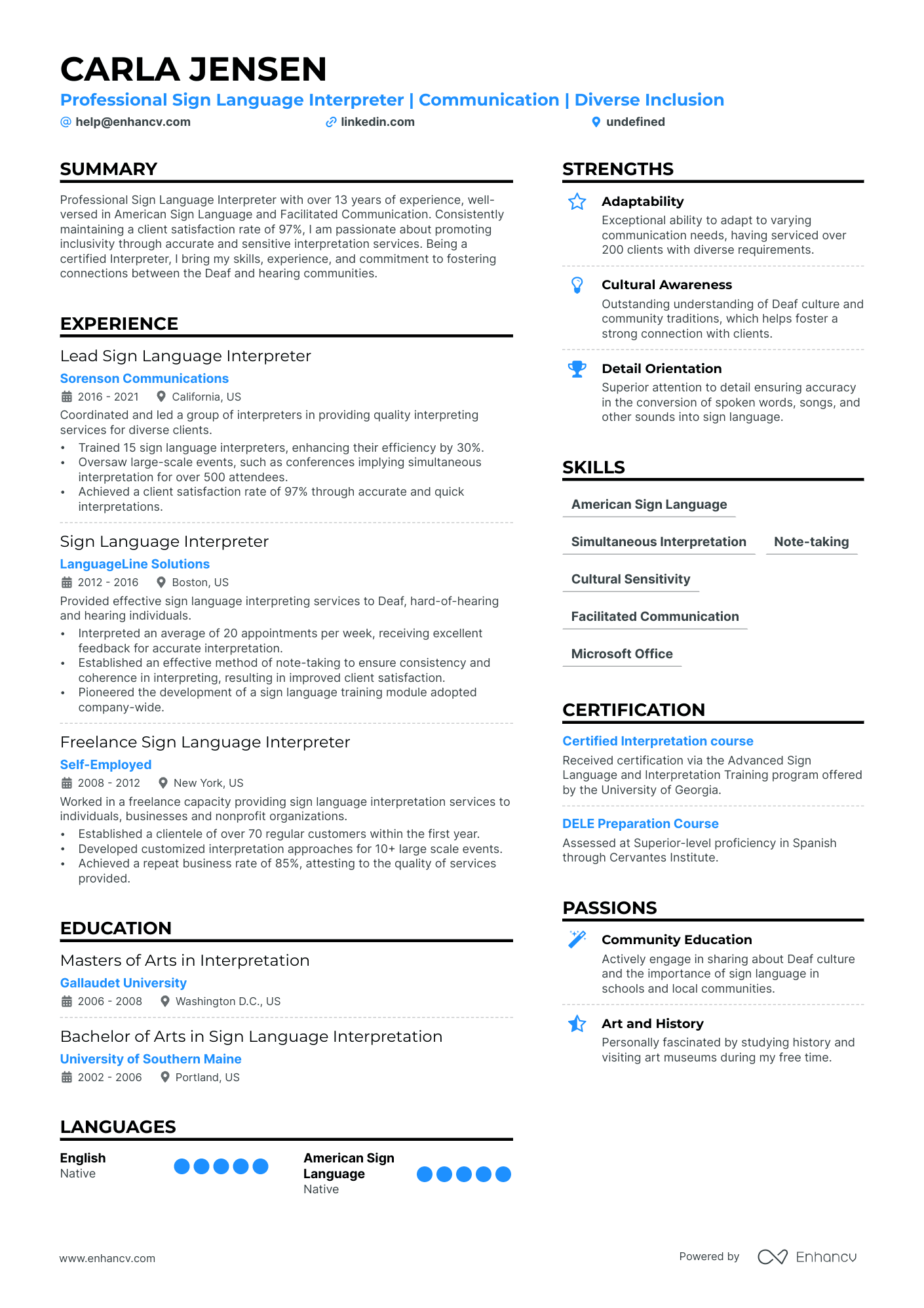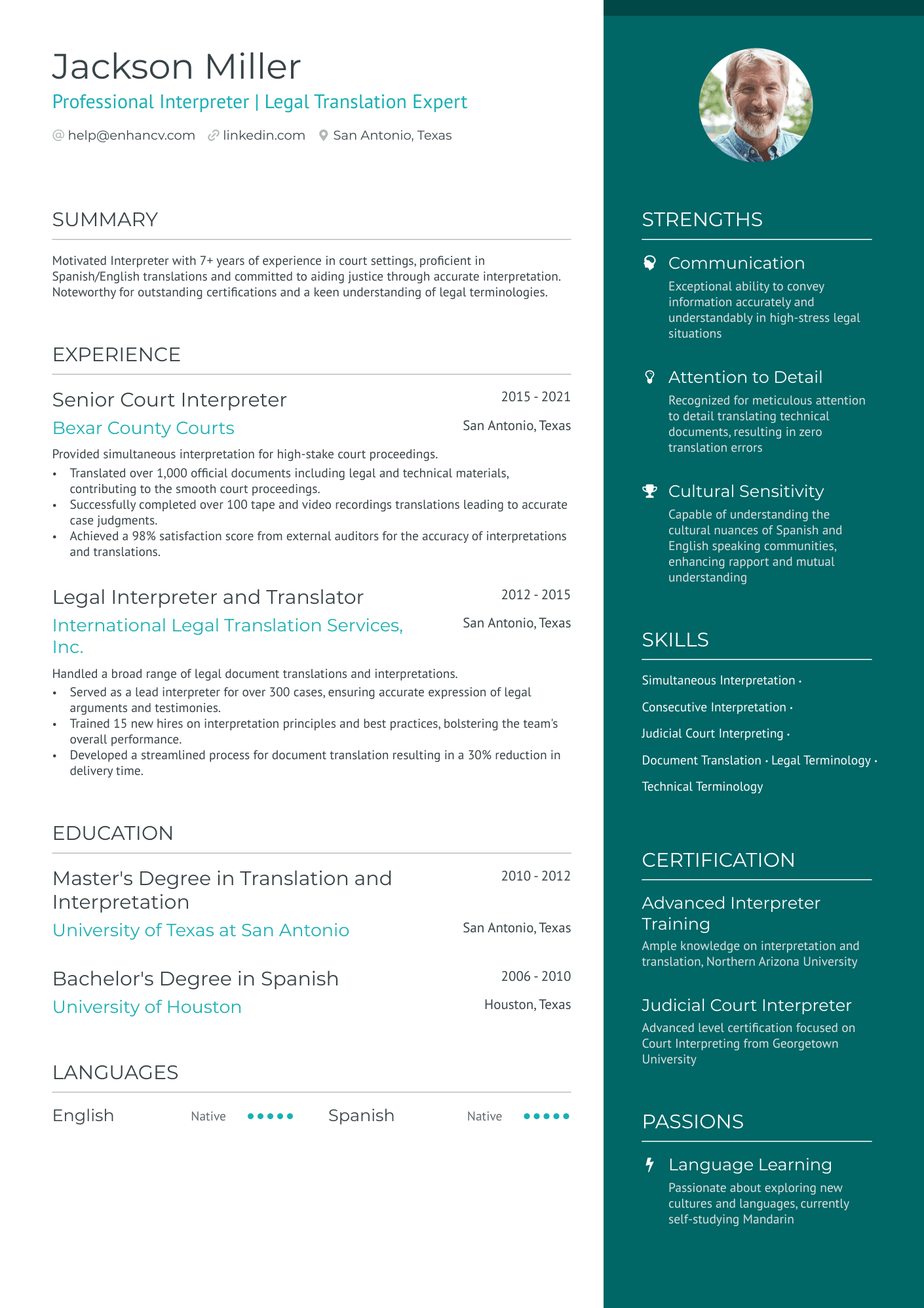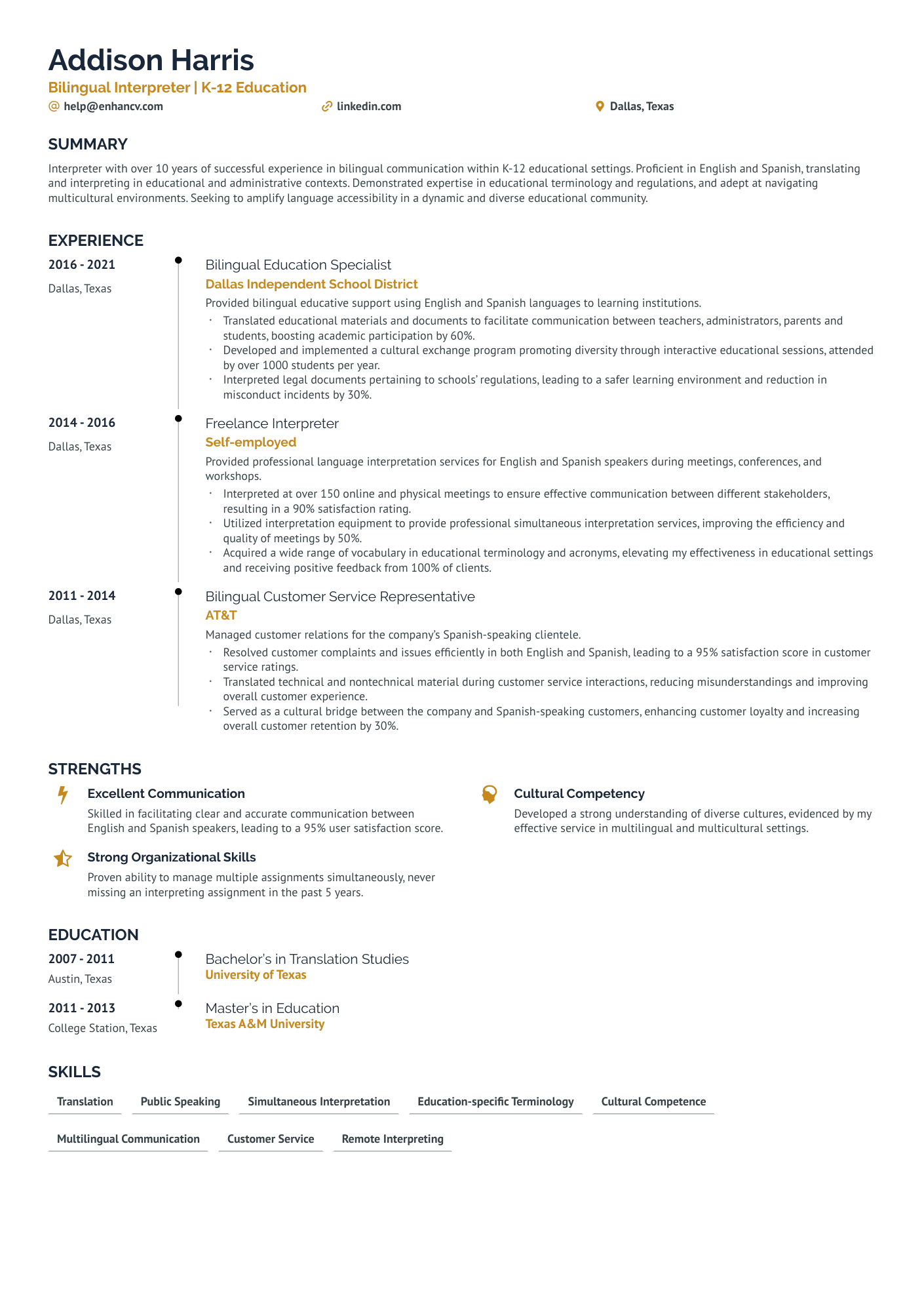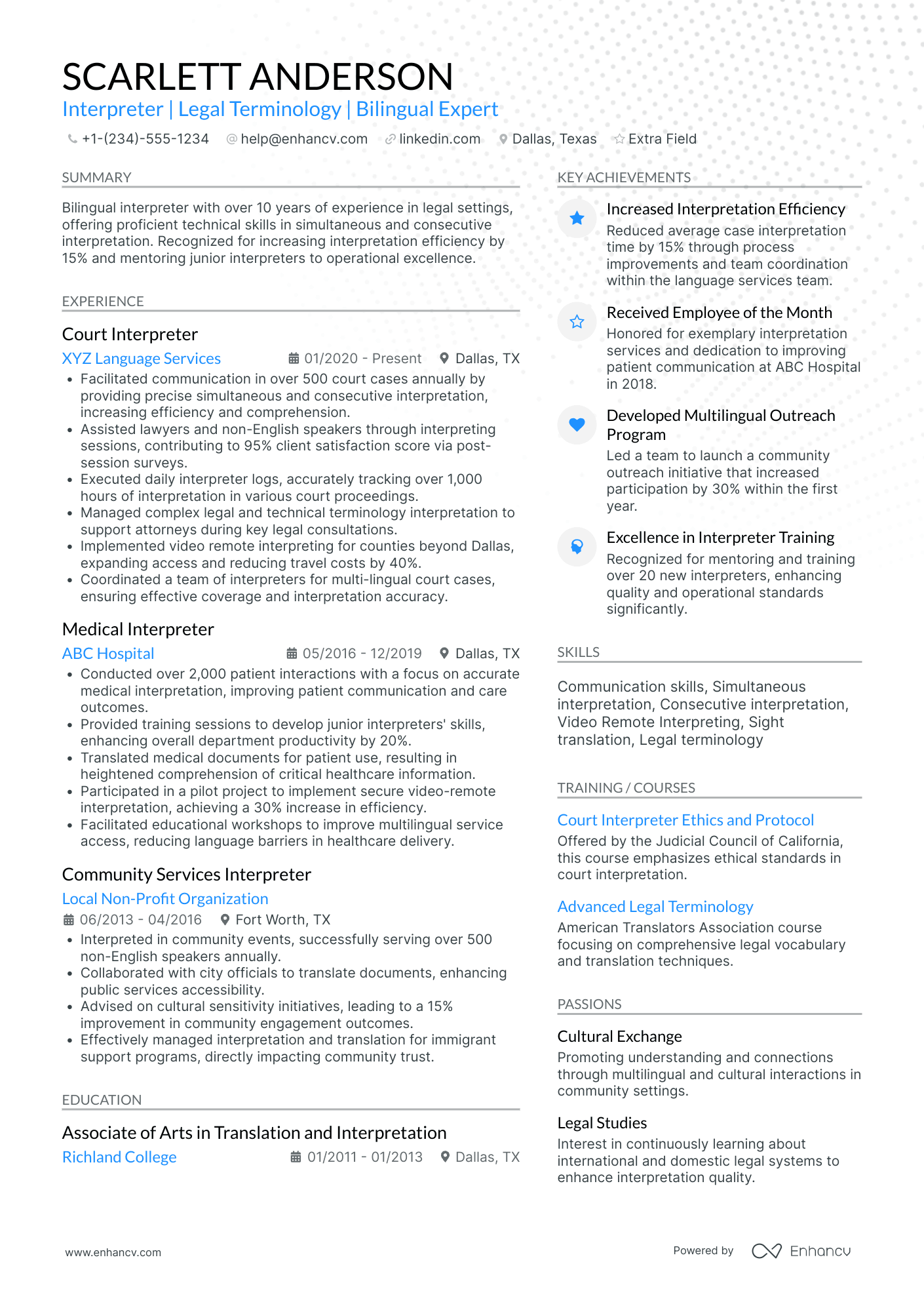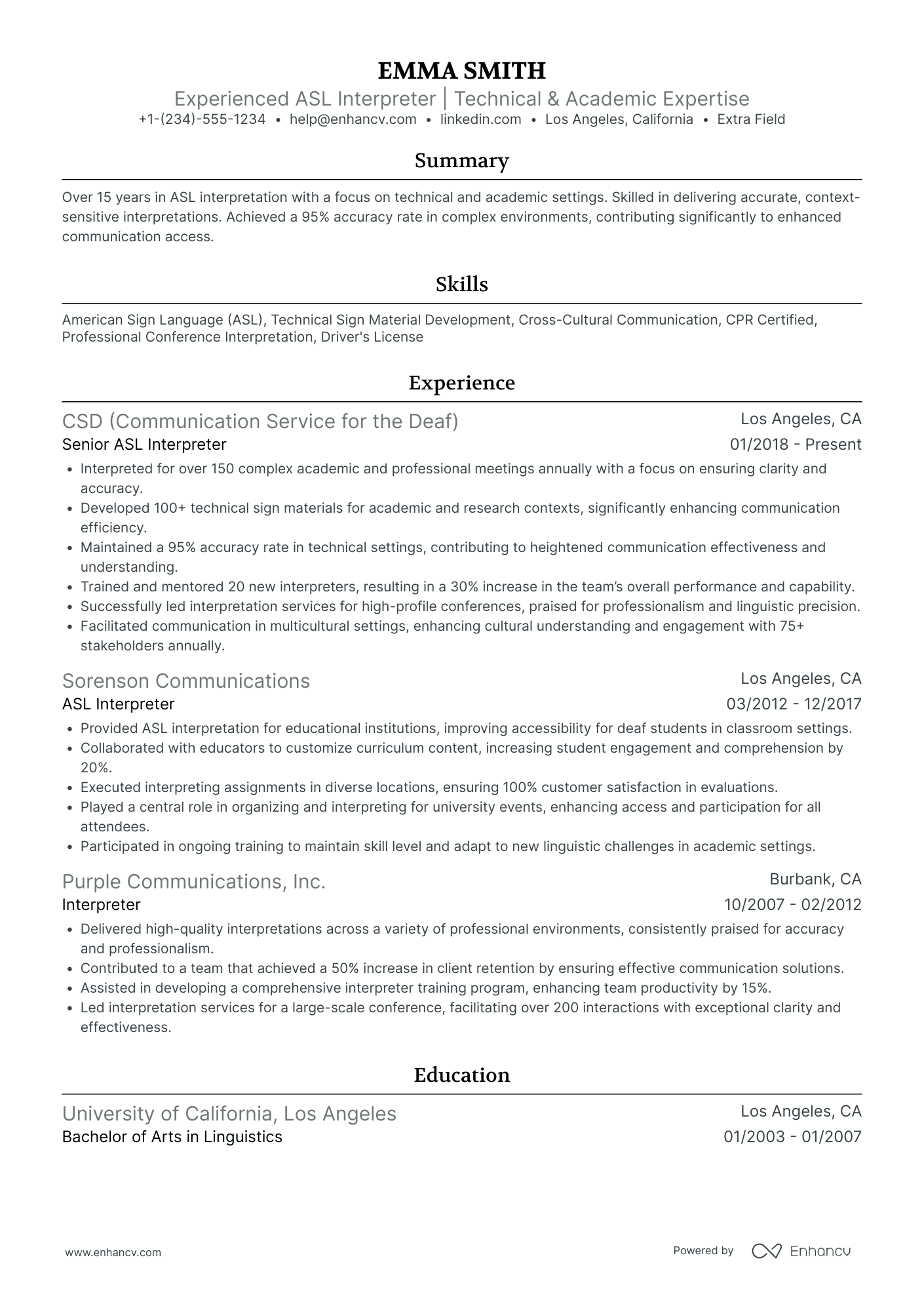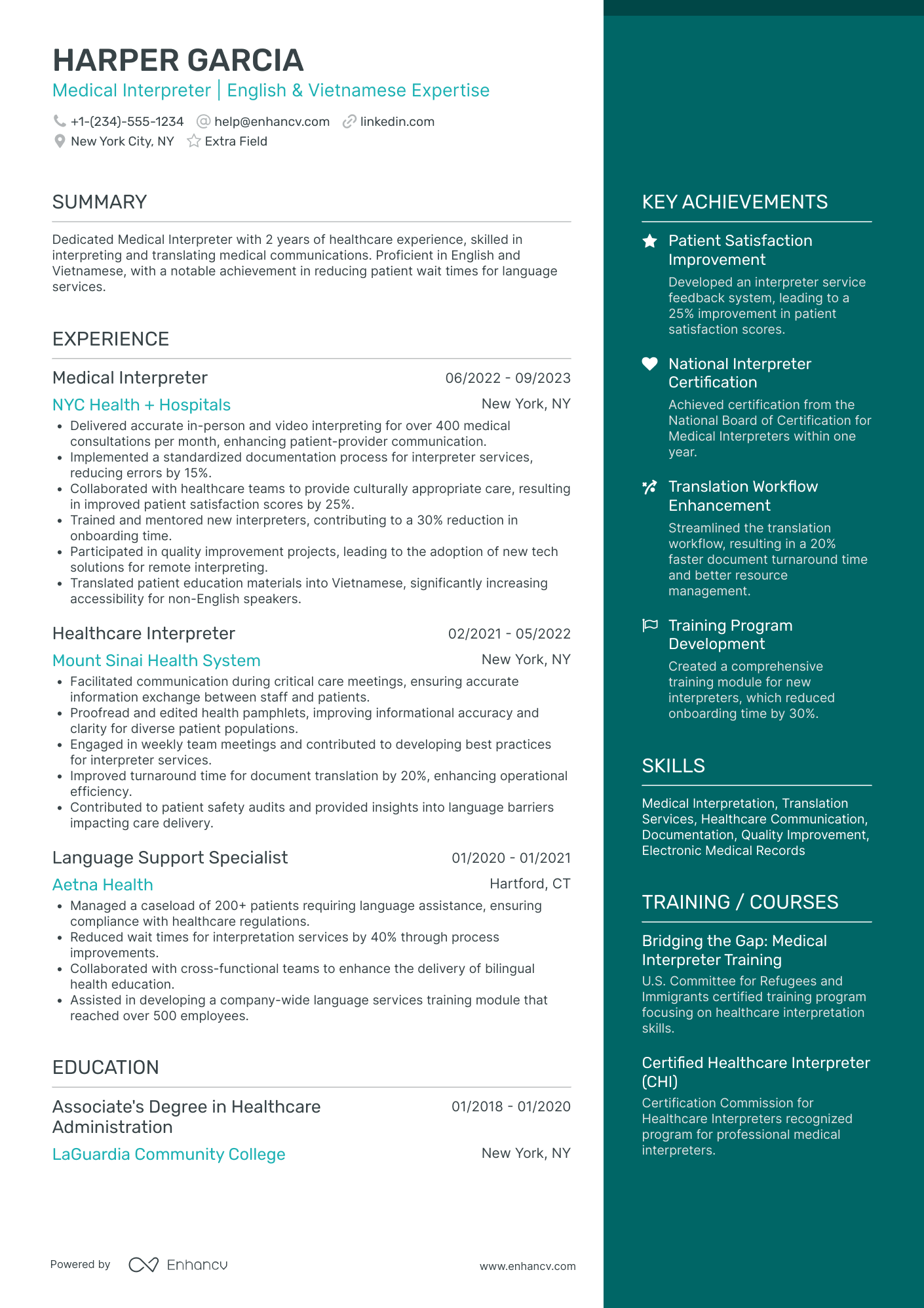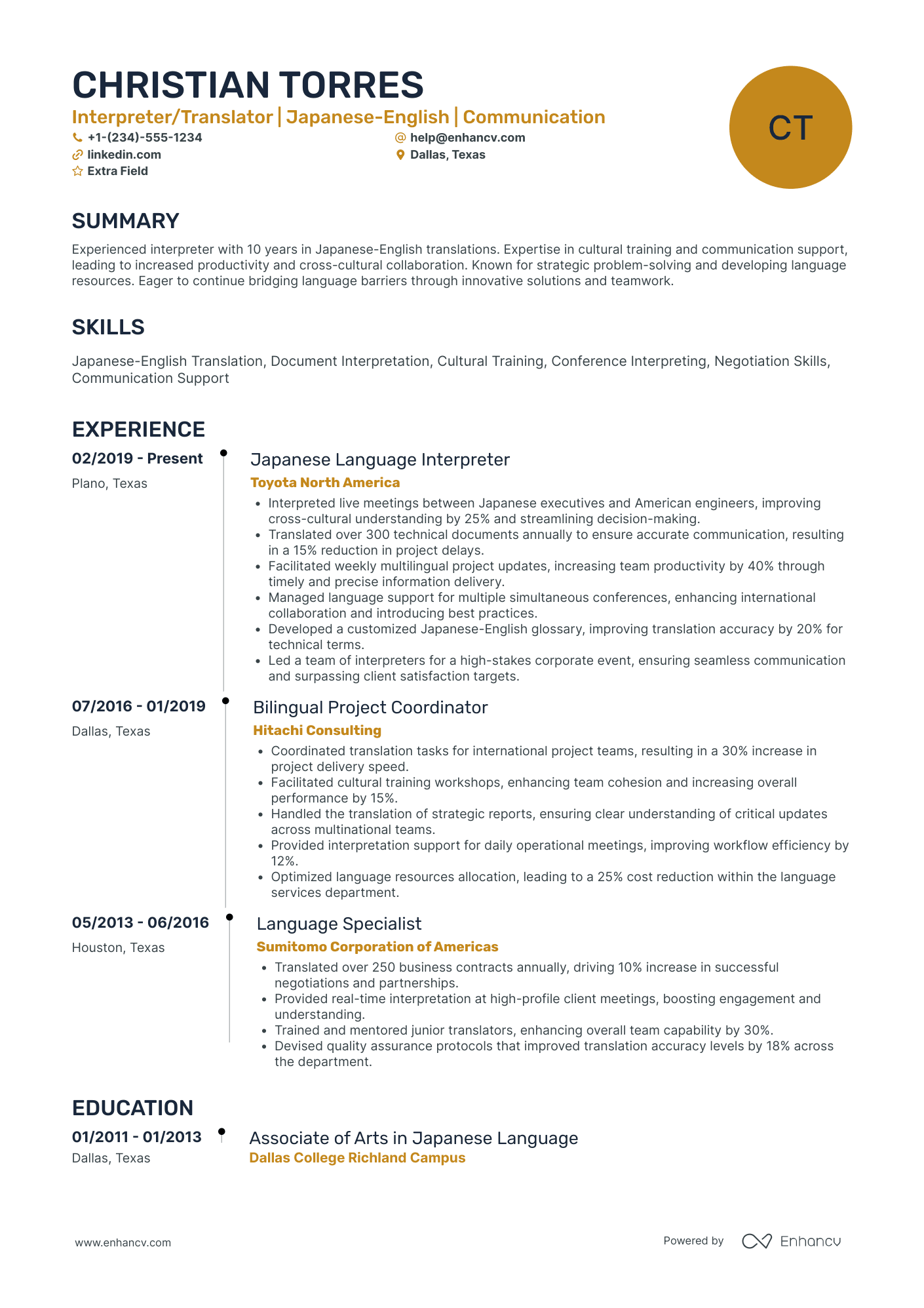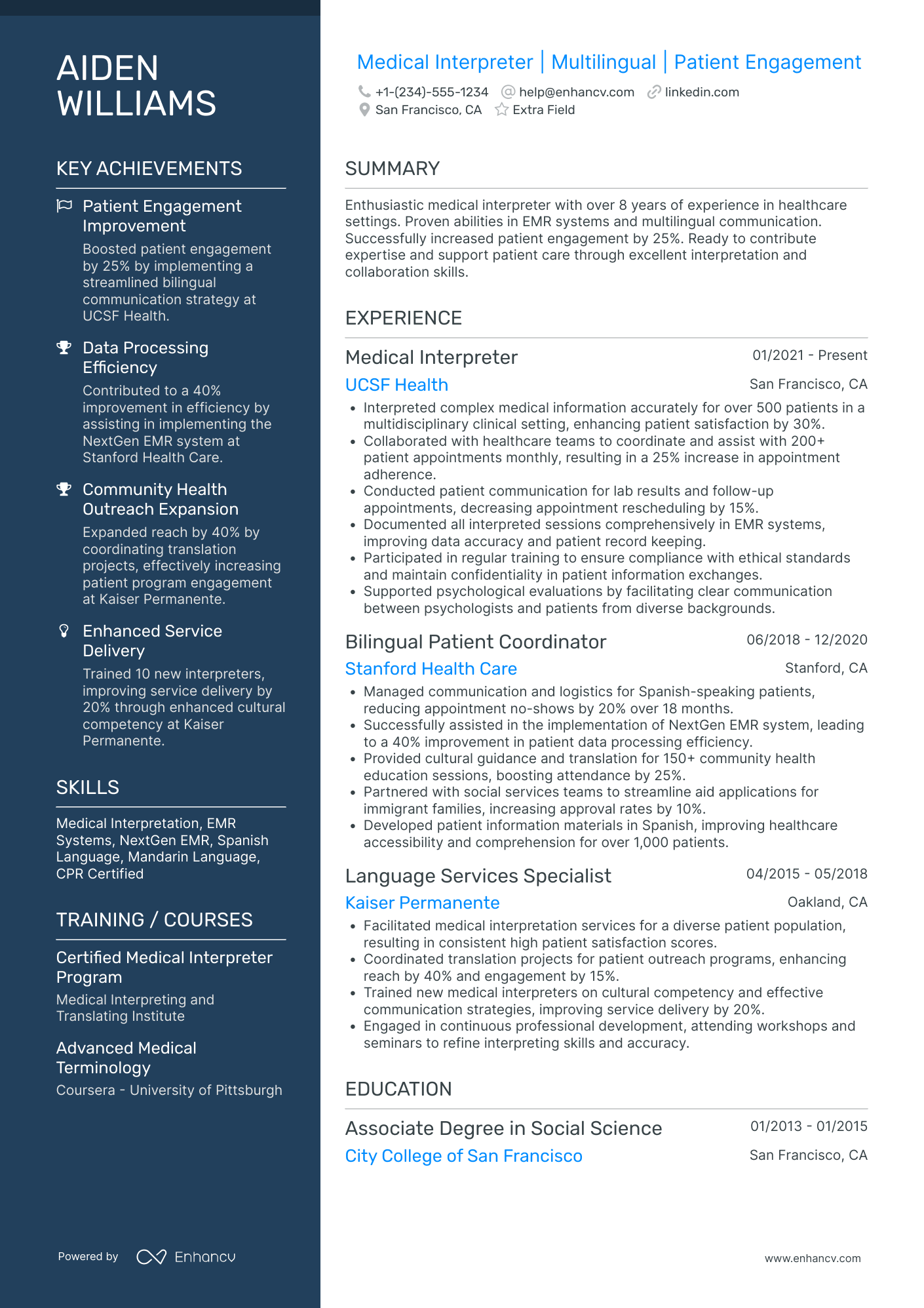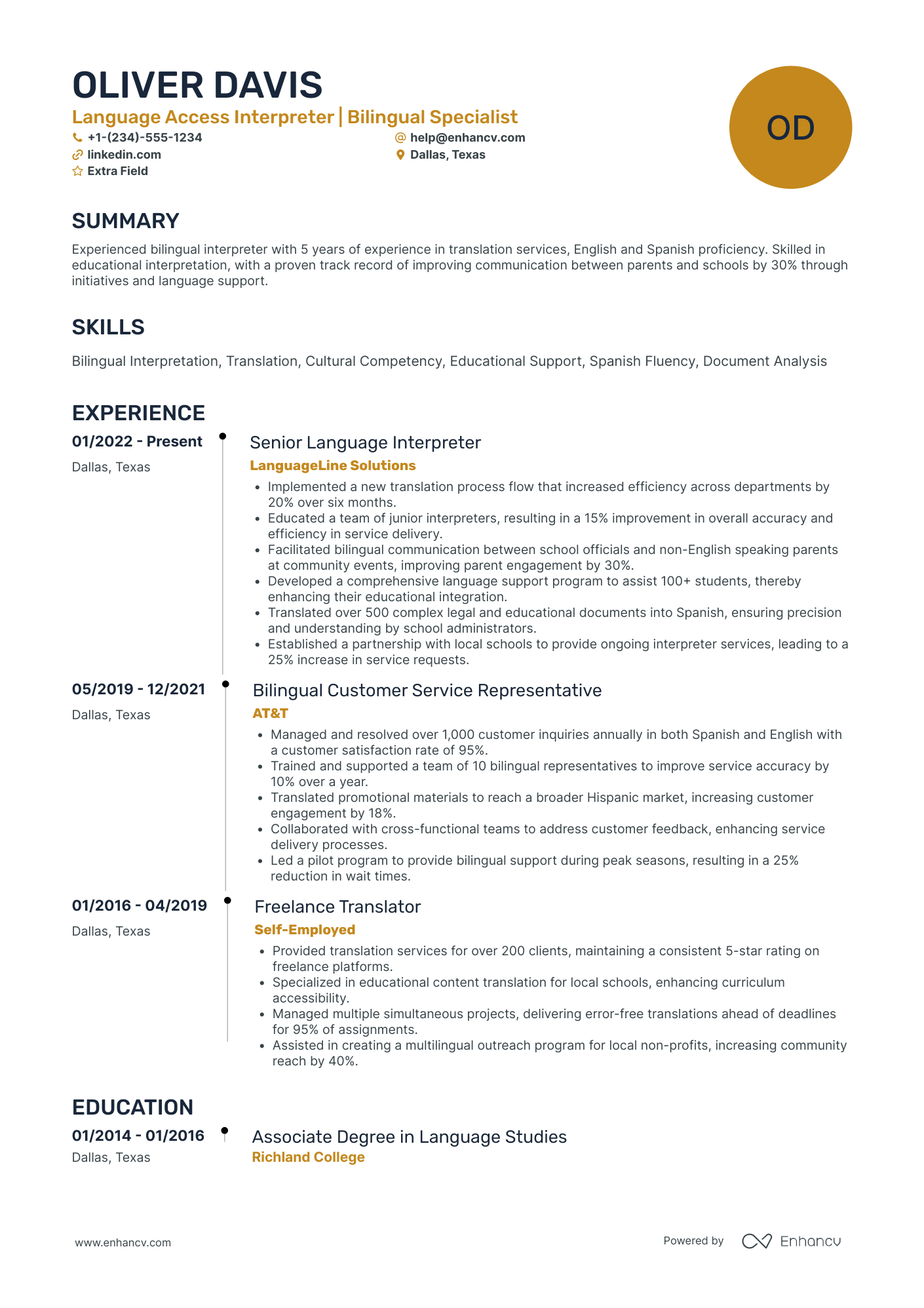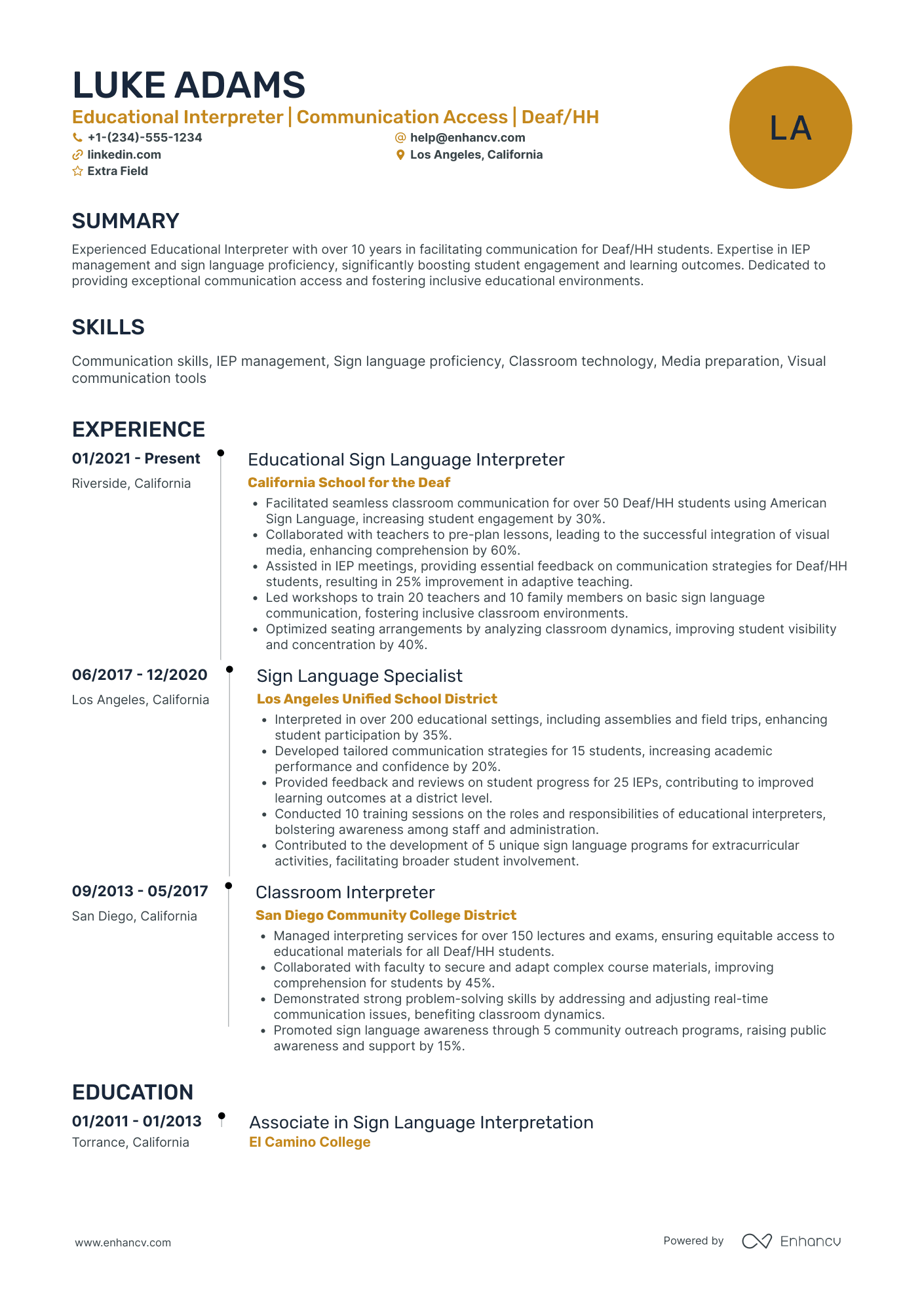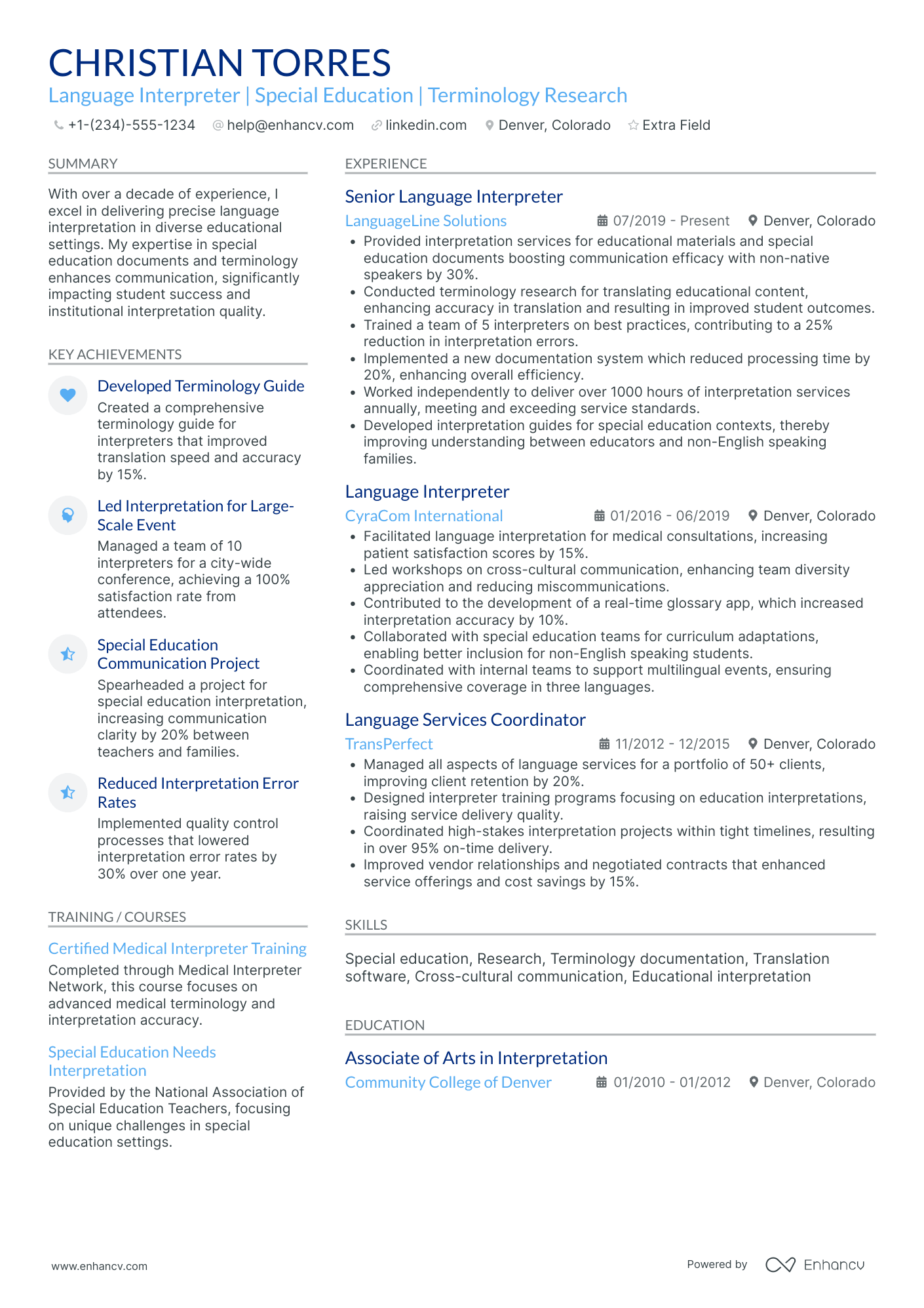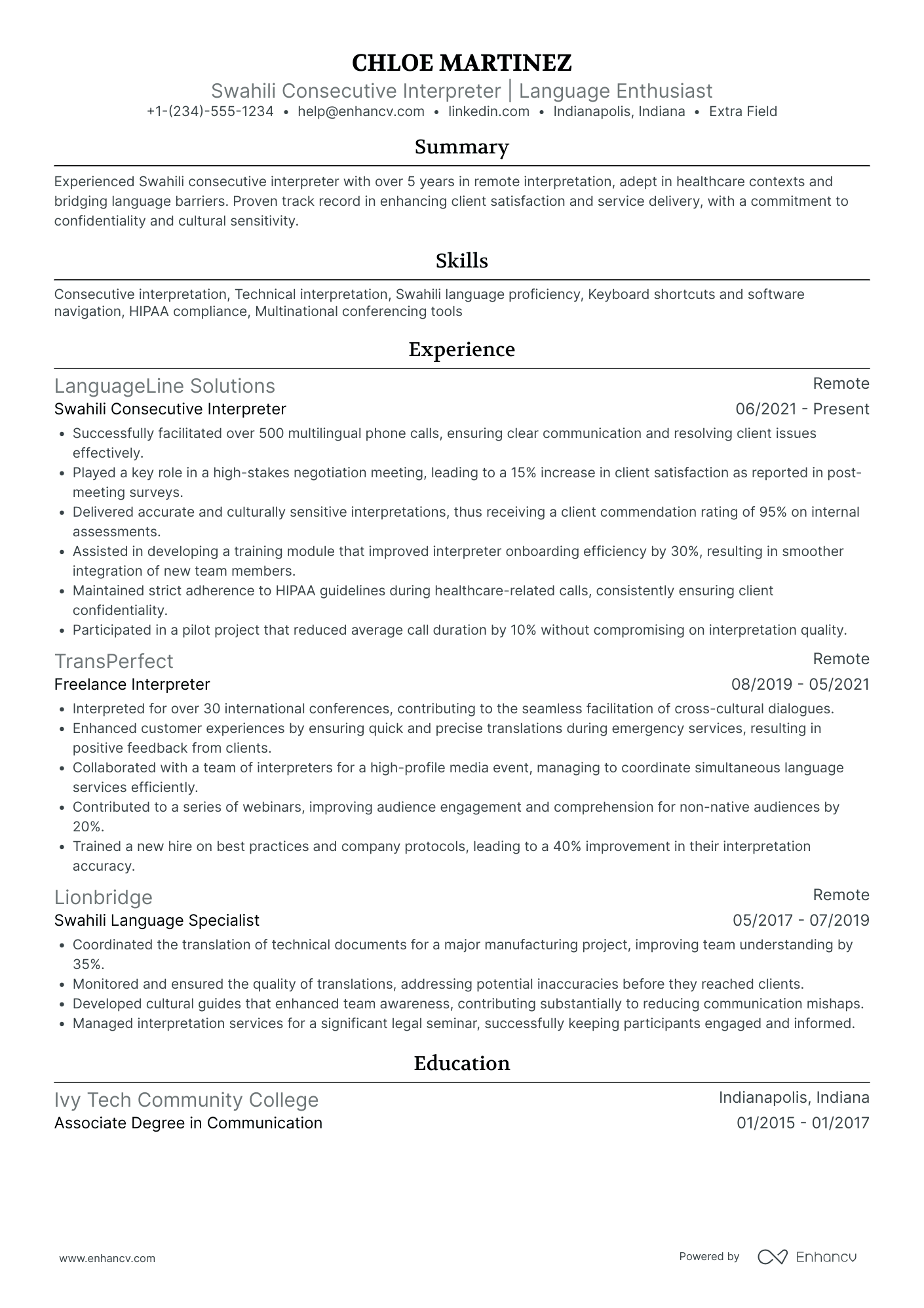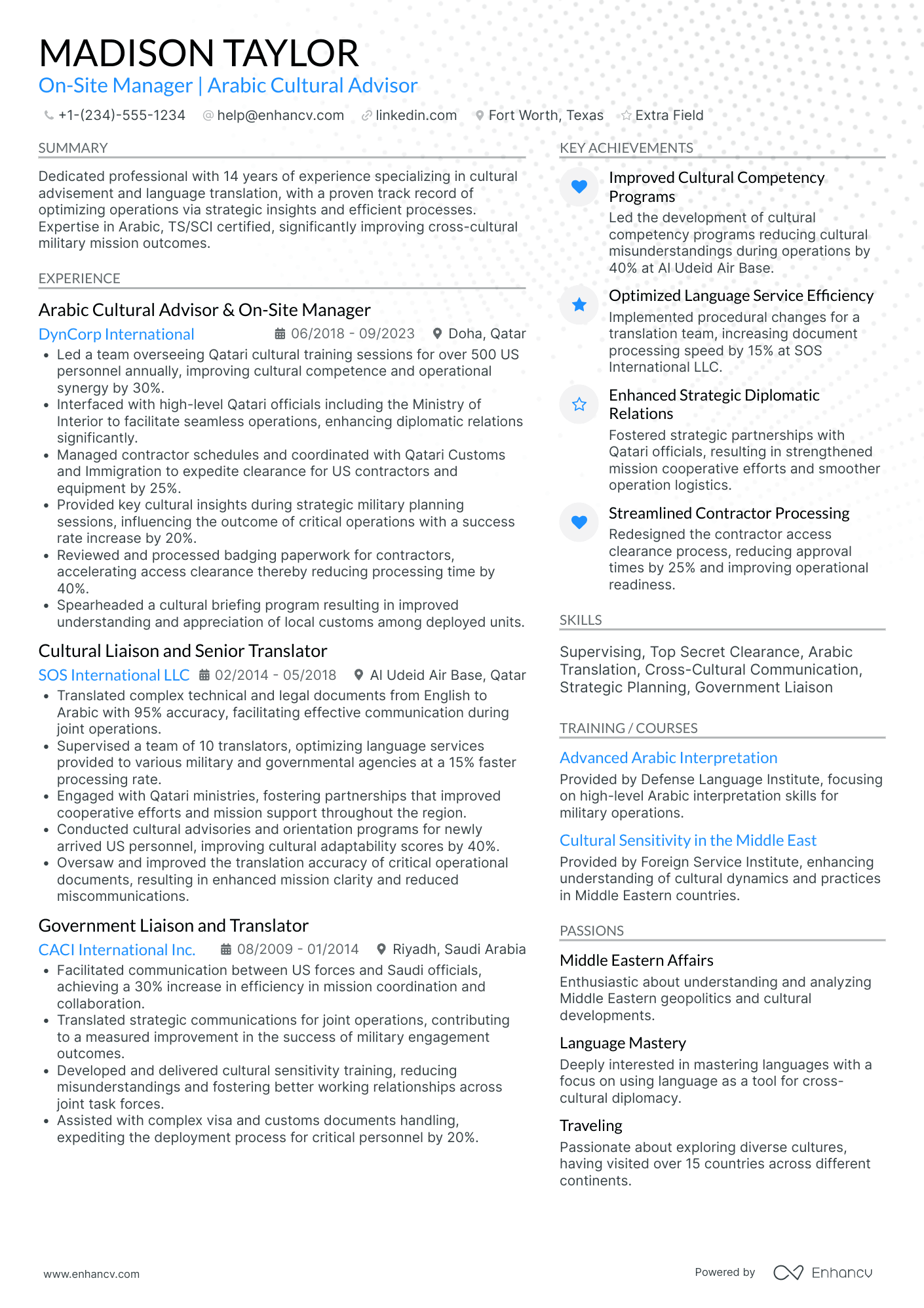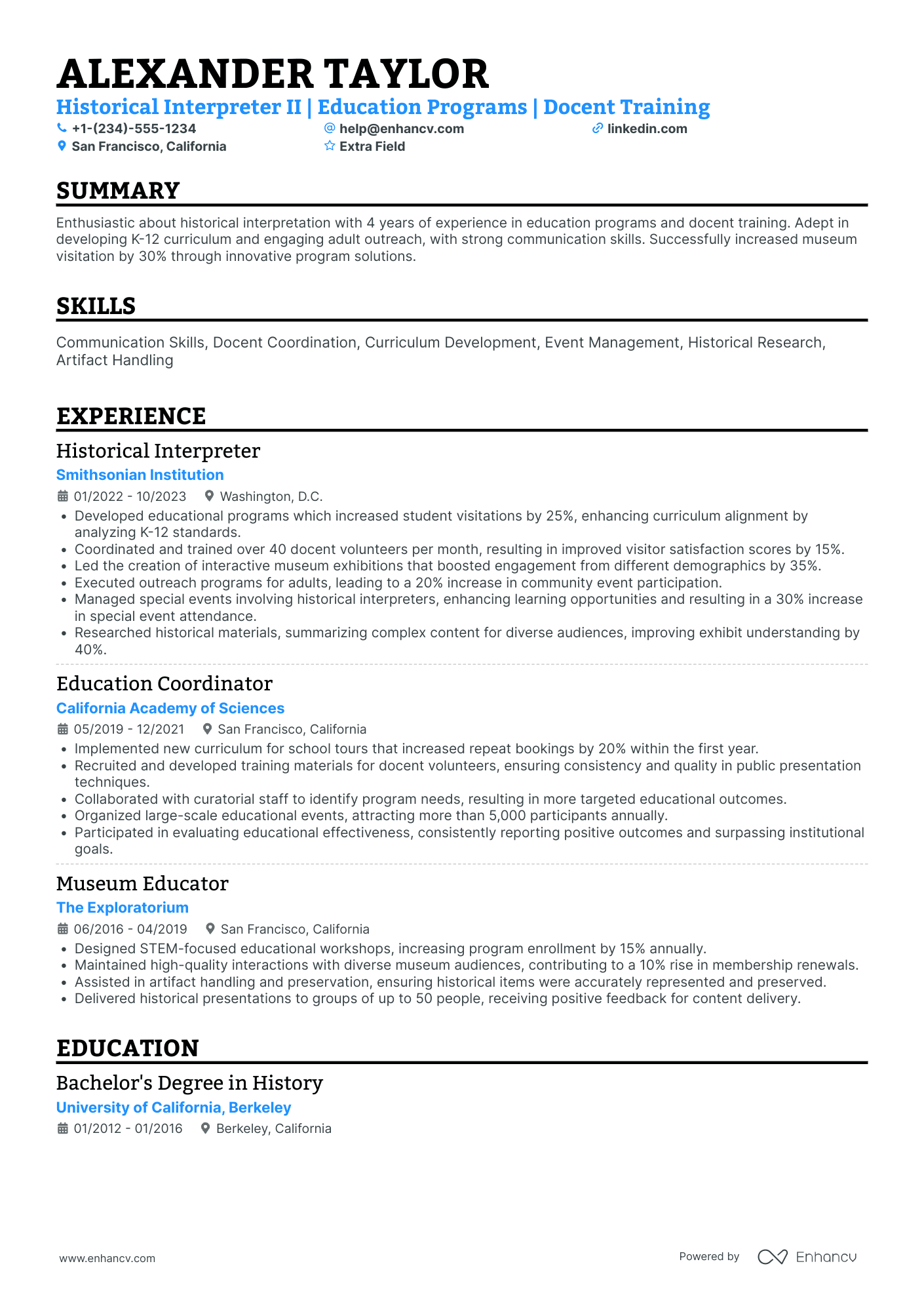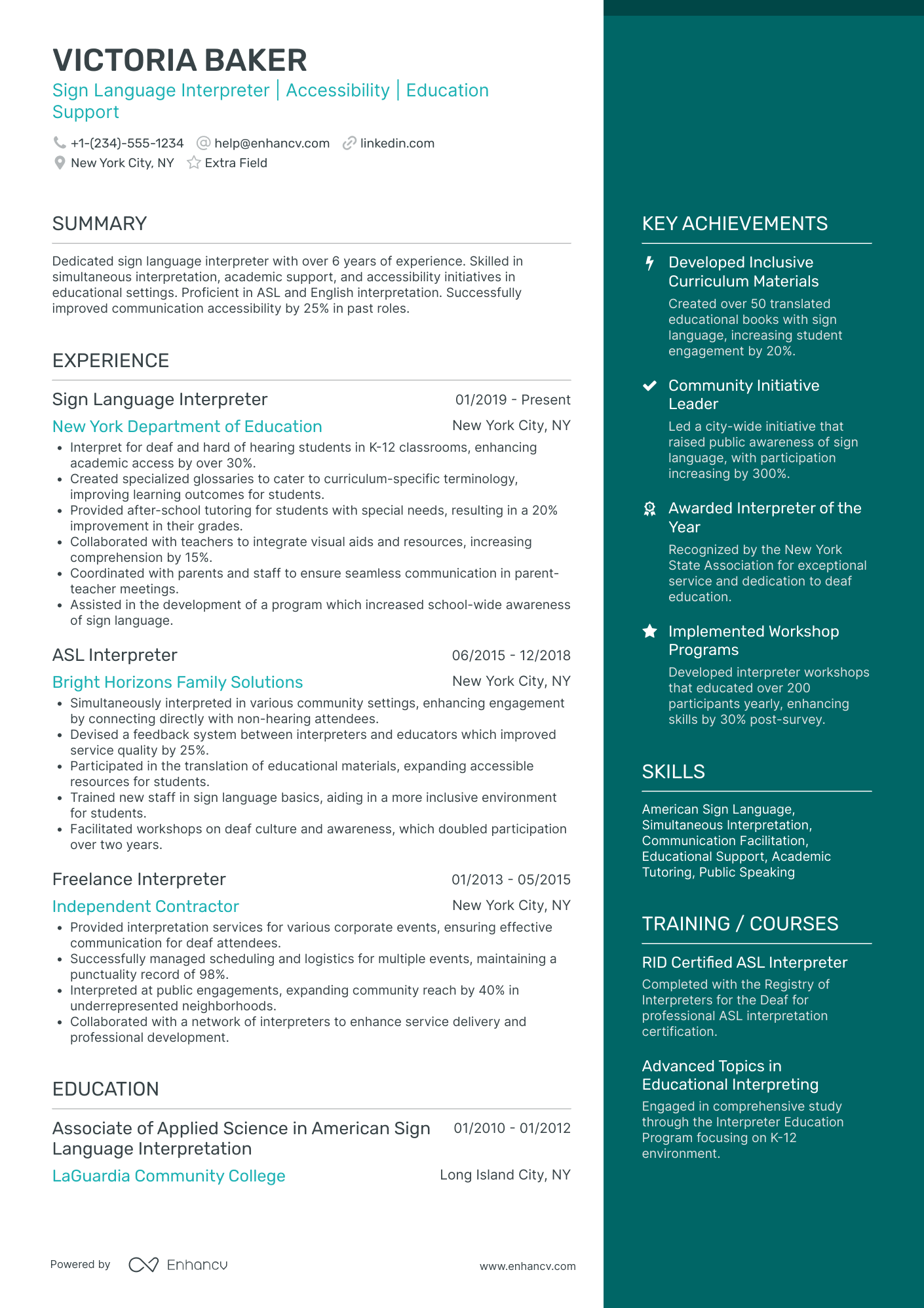Interpreters often encounter difficulty in showcasing their diverse language proficiency and cultural expertise to potential employers. Our resume examples offer tailored guidance on effectively highlighting both linguistic skills and cultural knowledge, making your qualifications stand out. Explore our examples below to discover how you can enhance your resume.
Interpreter resume examples
By Experience
Lead Interpreter
Senior Interpreter
Entry-Level Interpreter
Junior Interpreter
By Role
Medical Interpreter
Medical interpreting is a demanding profession that calls for a unique set of skills and knowledge. Your resume should highlight your command of both languages and your understanding of medical terminology.
Focus on your certificates in medical interpreting, as it shows your specific skills in the field. Include your understanding of medical ethics, as the job often requires ‘on-the-spot' interpretation.
Don't just list the languages you speak; also demonstrate your interpretation skills, like simultaneous or consecutive interpretation. For example, 'facilitated patient-doctor communication by providing consecutive interpretation during appointments'.
Mentioning any relevant medical knowledge or healthcare industry experience would add value. Also, emphasize your people skills and ability to handle stressful situations. Such skills are crucial for success as a medical interpreter.
Spanish Interpreter
Sign Language Interpreter
Applying for a Sign Language Interpreter position requires a focus on special skill-sets and experiences. Fluency in sign language is a given, but your resume should illustrate more than that.
Highlight your certifications in sign language interpreting, which is often a prerequisite. Don't forget to include your familiarity with Deaf culture and understanding of interpreting ethics.
Rather than simply stating your knowledge of sign language, provide evidence of successful interpretation scenarios. For instance: ‘enhanced communication in classroom settings by providing American Sign Language interpretation'.
Specify any areas of specialization, like legal, medical or educational interpretation. This demonstrates your versatility and allows potential employers to visualize your contribution more concretely.
Soft skills like empathy, patience, and the ability to handle high-pressure situations should be part of your resume. These can be the difference between an average and a superior sign language interpreter.
